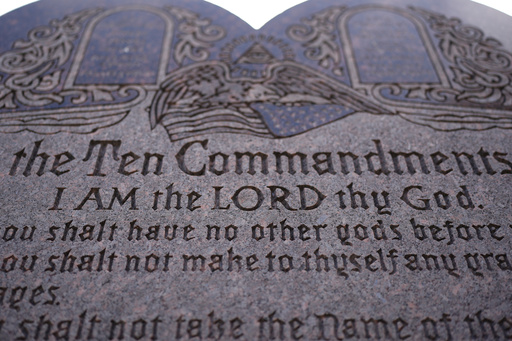WASHINGTON — A recent survey highlights the delicate balance Americans maintain regarding religious expression within schools, revealing diverse and sometimes cross-partisan views. The poll, conducted by the NORC Center for Public Affairs Research at the University of Chicago, shows that while a majority of adults oppose the idea of religious schools being funded as public charter schools, many are open to having religious chaplains assist students in public settings.
The nation’s discourse around religion in public education remains fervent, influencing both legislative actions and legal cases. Illustrative instances include a legal contest in Arkansas surrounding a mandate to place the Ten Commandments in classrooms, debates across states about permitting chaplains in public schools, and a Supreme Court ruling that halted the establishment of a state-funded Catholic charter school in Oklahoma.
Opinions feature stark contrasts on other religious activities such as teacher-led prayers. Notably, white evangelical Protestants and Black Protestants, often politically divided, both show significant support for school prayers, unlike other religious demographics. They are particularly adamant that religion holds too minimal a sway in public education.
Support for chaplains is notably stronger, with about 60% of U.S. adults advocating for their inclusion to provide guidance in schools. However, there’s considerable resistance to the incorporation of teacher-led prayers or allocated times for prayer during school hours. Texas initiated the inclusion of school chaplains in 2023, prompting discussions in several other states to pursue similar measures. This reflects a broader conservative agenda, although it faces opposition from proponents of a distinct separation between church and state.
Sally Hacker of Michigan, aligning with this conservative stance, endorses the presence of chaplains, believing they could offer critical moral support via religious texts. Meanwhile, chaplaincy remains somewhat divisive among religious groups, with non-religious individuals generally resisting this notion. Public school teacher Cameron Thompson from Ohio argues that teacher-led prayers should remain an optional extracurricular activity rather than part of the formal curriculum.
Despite partisan divides—Democrats predominantly reject teacher-led prayers, while Republicans show lukewarm approval for mandatory prayer periods—the concept of school chaplains finds more consensus. Such varying opinions reflect broader tensions regarding integrating more religious elements into public education.
Gary Leu, a school psychologist from Utah, expresses skepticism about employing chaplains, fearing concealed agendas and lack of professional oversight. Although not religiously affiliated, Leu questions the necessity for chaplains without clear evidence of unmet needs in the school system.
There’s considerable opposition against funding religious charter schools using taxpayer money, with nearly 40% opposed, 25% in favor, and the remainder remaining ambivalent. While the Supreme Court’s recent deadlock left the fate of religious charter schools unresolved nationwide, similar initiatives continuously shape state policy agendas.
There is scant majority favoring religious charter schools across religious or secular lines, although white evangelical Protestants are somewhat more inclined compared to Catholic, Black Protestant, and mainline Protestant communities. However, there’s a common strain of skepticism among atheists, agnostics, and other non-religious individuals.
A portion of the population is tolerant of voucher programs enabling private school attendance for religious or non-religious education, seen as a right by advocates but criticized by others who argue it diverts funds from public schooling. Jess Tichenor from Oregon, wary of perceived favoritism, opposes tax-funded religious charter schools and related voucher programs.
Against this complex backdrop, some states have progressively expanded school voucher initiatives aligned with recent Supreme Court decisions. Proponents view these as empowering parental choice, with some leaders branding them as crucial civil rights matters. Yet, concerns persist that such measures could primarily benefit wealthier families while marginalizing the majority reliant on public schooling.
Additional insights from the poll reveal mixed views on the influence of religion in education, with varied stances on public schools providing information about available books and religious exemptions for vaccines. Many Americans emphasize the nation’s identity is closely tied to religious freedom and the separation of church and state, although these principles are weighted differently.
These findings derive from a comprehensive poll surveying over a thousand adults, conducted with a margin of error at plus or minus four points, aiming to accurately reflect the diverse spectrum of U.S. public opinion.


